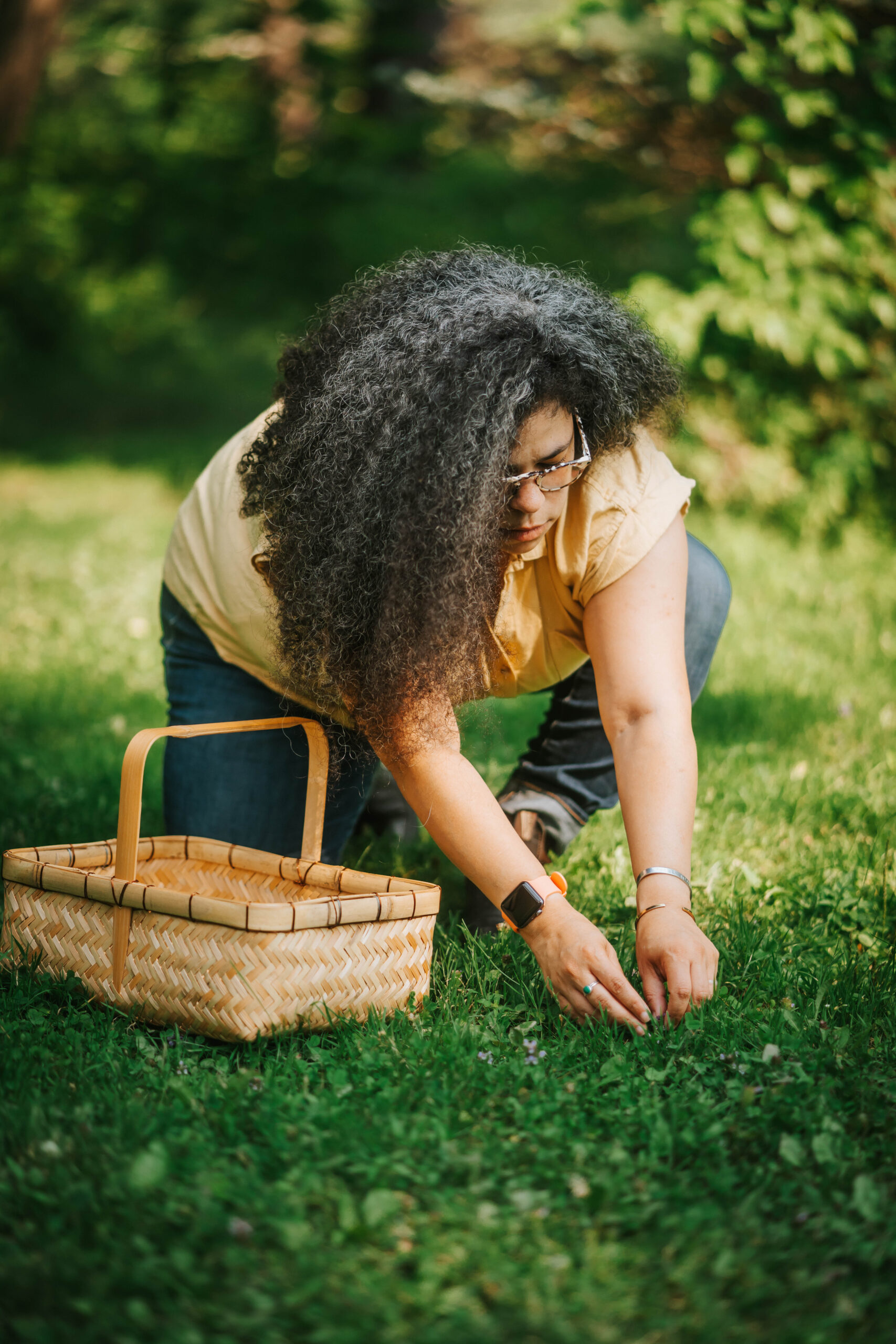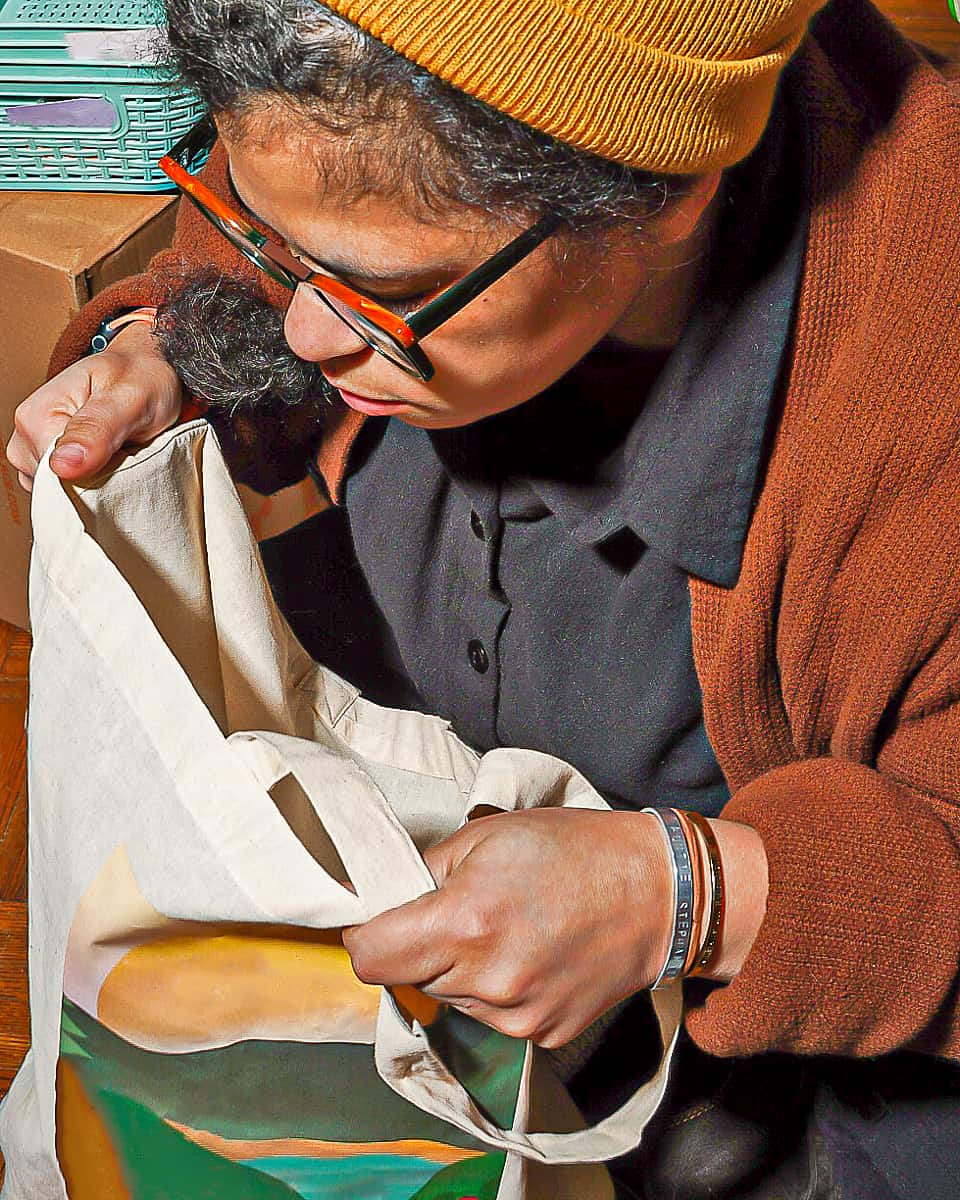In a world where burnout is a popular outcome when embracing hustle culture and living a fast-paced life and where anxiety can run rampant. What's one to do? Perhaps adapt a slow living practice?
The slow movement is a collection of people who have gravitated to a slower, less hectic, more tranquil mindset and pace of living. Here's a look at the slow lifestyle, including ways to become part of it.

What is the slow living movement?
Slow living means being present and mindful in your everyday life. It's a worldwide movement focused on enjoying the little things and finding inspiration in the world around you. It's about slowing down to be more productive and creative.
Slowing down doesn't mean living like a hermit or embracing minimalism, but making intentional choices about spending your time and what makes up your life. For example, if you want to become more creative at work, leave an hour earlier to exercise or meditate before heading into the office. You should stop multitasking by focusing on one task at a time and finishing it thoroughly.
Slow living is a lifestyle that embraces the good things in life. It's more than just a trend, and it's here to stay.
What is slow living?
The world is a busy place, and it's getting only busier. Fast food, social media, WiFi, and instant everything have turned our lives into frantic little hamster wheels, as we're constantly striving to be ahead of the Joneses and outdo our peers. But what if you could reclaim your life — skip the lines for McDonald's and Starbucks, forget about retweet contests — and focus on the simpler life? This is where slow living comes in.
“Being Slow means that you control the rhythms of your own life. You decide how fast you have to go in any given context. If today I want to go fast, I go fast; if tomorrow I want to go slow, I go slow. What we are fighting for is the right to determine our own tempos.”
In praise of slowness: challenging the cult of speed by Carl Honoré
The slow living moment is about taking the time to appreciate the small aspects of everyday life. Living a slower pace of life allows you to pause, reflect and reconnect with yourself, your community, and the planet.
As a result, slow living can improve physical and mental health, stronger relationships and connections, increase creativity and productivity, better financial stability, and deeper gratitude for daily life.
What Slow, intentional living looks like

There is a privilege and prioritizing stillness but adapting a slower lifestyle does not have to be a lofty goal.
Embracing slow fashion one might whittle their clothing down to a capsule wardrobe or embrace a commitment to purchasing items secondhand or previously used.
The slow food movement originated in Italy by Carlo Petrini and has increased in popularity the past decade but at its core is sustainability: eating what comes from the land around us and reducing our impact.
If travel is a big part of your life, adapting to slow travel means staying in places longer, being intentional with your modes of transportation, and taking time to appreciate an area rather than quickly consuming the highlights..
Benefits of slow living
The benefits of slow living are many — it can help you live longer, healthier and happier; improve your relationships; build stronger communities; improve your physical and mental health; increase productivity and creativity; develop more financial stability; and deepen your appreciation for life. Here are just some of them:
Improved physical and mental health

By slowing down and giving yourself a break, you can reduce stress and anxiety, positively impacting your physical and mental health. Slow living encourages you to step back, focus on your well-being, prioritize self-care, and make time for people and moments that bring you joy and relaxation.
A slower way of living can improve your overall health by reducing stress levels, increasing opportunities for exercise, and getting outdoors.
Stronger relationships and connections
Slowing down can help you to build stronger relationships and connections with yourself and others. You can create meaningful connections to friends, family colleagues and foster meaningful conversations by putting your devices down and genuinely engaging with people.
Living an intentional life lets you be more present and appreciate what's happening around you. Slowing down helps us become more mindful and aware of our surroundings, which is crucial for developing a deeper understanding of ourselves and those around us.
Increased creativity and productivity
Slowing down and taking the time to be mindful can increase creativity and productivity. When you take the time to get clear on your goals and how you want to achieve them, you can better focus on the tasks at hand and be more productive.
When constantly rushing through our days and checking our phones, we're losing valuable time that could be spent on activities like spending time with family or friends, exercising, or meditating.
In addition, the more we rush through our days without pausing to reflect on what's most important in our lives, the harder it becomes for us to focus on what matters most because there are always other things vying for our attention (e-mails, social media notifications, etc.).
Increased self-awareness
Being present means being aware of your thoughts, feelings, and actions. This awareness allows you to recognize when things are not going well so that you can make necessary changes in your life. For example, if you notice that you're feeling tired all the time or that you're having trouble keeping up with friends because they're constantly going out at night while you're glued to your desk job (and getting no exercise), then it's time to make some changes!
Better financial stability
Slowing down can help you to be more mindful of your money and to make wiser financial decisions. By taking the time to consider your spending habits and create a budget, you can develop better financial stability and achieve your financial goals.
Slowing down can also help you to enjoy the fruits of your labor. When we are busy rushing from one thing to another, we rarely want what we have worked so hard for. When we slow down and take time to appreciate what we have, we are much happier with our lives and choices. This happiness can translate into increased productivity at work and better relationships with family members and friends.
Overcoming Obstacles to Slow Living
Slowing down can be challenging, mainly when you are used to a fast-paced lifestyle. However, remember that it takes time and practice to get used to a slower approach and that taking small steps and making gradual changes is ok.
Dealing with societal pressure to keep up with a fast pace

It can be challenging to slow down when there is so much pressure to keep up with a fast-paced lifestyle. However, it is ok to take your time and prioritize moments that are meaningful and important to you.
Many factors contribute to the feeling of being rushed, such as:
Social media: Social media can create an unrealistic expectation of how our lives should look, making us feel inadequate.
Consumerism: The consumerist culture we live in has created a desire for more, more, and more. This can easily lead to spending more time working and less time enjoying life.
Unrealistic expectations: Society has conditioned us to believe that we are failing at life if we don't do everything. This causes us stress and anxiety because we need to be successful at everything we do, which is impossible!
Managing work-life balance
One of the biggest obstacles to slowing down is our busy lives. We are always on the go, trying to fulfill our work obligations and keep up with our families and friends. Therefore, it is important to manage your work-life balance when trying to slow down. Taking the time to prioritize your needs, be it a hobby or time with family, can help you manage a more balanced life.
Managing work-life balance
One of the biggest obstacles to slowing down is our busy lives. We are always on the go, trying to fulfull our work obligations and keep up with our families and friends. Therefore, it is important to manage your work-life balance when trying to slow down. Taking the time to prioritize your own needs, be it a hobby, or time with family, can help you to manage a more balanced life.
Combating the temptation of instant gratification

When you are trying to slow down, it can be tempting to seek instant gratification. However, it is important to remember that taking the time to enjoy the small moments and savor life's experiences can bring about more contentment and happiness in the long run.
Our modern society is full of distractions pulling us from living a slower life. These distractions include social media, smartphones, tablets, and online shopping websites. Try setting aside time each day to disconnect from all these sources of distraction and focus on yourself instead!
Fighting back against social pressure
Society has made us believe that we need everything now or else we will miss out on something great. This mentality causes us stress because we must constantly check off items on our "to-do" lists before our lives pass us by without accomplishing them all. No matter how busy or how many things we have going on, our lives will not truly pass us by if we slow down occasionally and enjoy what's right in front of us.
Staying committed to the slow-living lifestyle.
Building a slow life can be challenging, but with practice in your daily routines and patience, it can become more natural and enjoyable. It is important to stay committed to simple living and remember that getting used to a slower pace takes time and practice.






Comments
No Comments